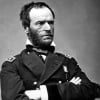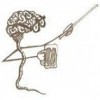When do you think the decade ends?
- ralwusposted 15 years ago
0
This is the first thread I've started in quite a while, but I think it's a question that's all over the place right now, and I haven't seen it in the forums. I did a quick search just to make sure.
When do you think the decade ends and the new one begins?
Does it end on the 31st of December 2009, or 31st of December 2010? And does the new decade start on the 1st of January 2010, or 1st of January 2011?
Have at it. This should be good.
@ 0 - and @ 10, all 10s are the zero years peeps. decade ends in 09.
2010 is the next decade.
I believe their is a famous mistake in the gregorian calender in regards to zeros.
They have been messin with the masses, since the Hindus created it, the "zero", along with "Arabic Numorology", which is a complete mis-gnomer.
A lot of people seem to think so. Everyone is making their "best of the decade" lists and so on.
It was funnier about Y2K. But I still don't know the right answer ![]()
Strictly speaking the decade ends on 31 December 2010. We start counting from 1 (i.e. 2001 is the start of the decade) so ten years thereafter would be 2010. But the convention has become that the decade ends on 31 December 2009. Does it really matter, though?
about as much as daylight savings time.
Zero comes before one. We count from 0 1 2 3 4 5 6 7 8 9 (10)zero, 1 2 3 4 5 6 7 8 9 etc. thus the 1900, or 2000 turn of the century mark.
1999 being the end.
I agree with that. We starting counting from 1, not 0.
Does it matter? Well, to be honest, I just wanted to see some fighting! ![]()
You want to see fighting ask which is better Cola or Mountain Dew?
"@ 0 - and @ 10, all 10s are the zero years peeps. decade ends in 09."
"2010 is the next decade."
I believe their is a famous mistake in the gregorian calender in regards to zeros.
They have been messin with the masses, since the Hindus created it, the "zero", along with "Arabic Numorology", which is a complete mis-gnomer.
SORRY, I was babbling in the edit box. lolol
Depends if you want chronological time of vernacular time.
Chronologically:
If we started counting at one, then a baby would be 1 year old when it emerges from the womb. It is not, however, and we count only months until 1 year has been completed.
A decade is the same. Given that our calendar started presumably with the birth of Christ (just go with me people, please), then at that point we tick off 12 months and call it year one at the completion of the 12. The next day is year 1 and a day. THen year two and a day, year three and a day, ... year 9 and a day... therefore by this reasoning, a decade is not complete until a full span of ten years has completed itself, meaning, Dec. 31, 2010 marks the completion of 10 years.
Vernacularly:
Decades for the sake of conversation and labeling are about like numbers as defined by sets of numerals (teens, twenties, sixties, etc.). In that case, the "decade" starts when the first numeral, the numeral in the "tens place," changes to the next in sequence. The 20's can only be years with a 2 in the first position, seventies with a 7 etc. In which case, this decade ends this year, on the 31st. However, by that reasoning, what do we call this decade, the zero's? The "ones?"
The noughties? I hate it when people say that, for some reason.
Oh but noughty sounds so naughty, how could you not like it?
That's why I don't. I get images of TV commercials with women who think they're sexy saying, "Oh so naughty!" ![]()
I like how you've broken this down.
Also, while technically the calendar started from the 'year of our lord' it was only implemented what, centuries later? So they never had to worry about when the year 0 started or ended.
Hey AV...Hope your doing well? UUUH...it probably is not significant...because it seems like trends for a particular decade usually get tacked on to the previous decade for awhile...in some instances; black and white TV sitcoms (50's)and disco (70's)...get credited to a previous decade...off the top of my head. But...based on "Y2K" type of thinking...we were deff headed into the next millenia after midnight of December 31, 1999...so why should that change for "decade" type of thinking?
Hey MPM. I know it's probably not significant, but it's just something I've come across a lot lately. Whether it's online or in the paper, on the news, etc.
Just a good old debate about an old debate, I guess. Both sides have convincing arguments.
Good deal...![]() ...Thanks for posting something fun to debate on, AV. I like the good old debates...actually get to use your wits more in one of them...then in a heated argument
...Thanks for posting something fun to debate on, AV. I like the good old debates...actually get to use your wits more in one of them...then in a heated argument ![]() I wasn't knocking your thread (No way, bro!) by any means...just trying to win the debate...Ha!
I wasn't knocking your thread (No way, bro!) by any means...just trying to win the debate...Ha! ![]()
No worries. I know you weren't knocking it. But will anyone really win in the end? I guess come Friday, 1st of Jan, it will be pointless trying to convince some people, seeing as their decade would have all ready begun. The others will have to wait a year. ![]()
So dec 31st is the end of this decade, and jan 1st is the start of the next.
Until now I've heard and read about two theories:
1st Jan 2000 - 31 Dec 2009
and
1st Jan 2001 - 31st Dec 2010
But today I was told that there's even a third group who believe that the last decade was like this:
1st Jan 2001 - 31st Dec 2009.
That's like a mixture of the two, but it's only nine years so it must be wrong, seeing as a decade is ten years, obviously. But that's what some people think. ![]()
by Maya Marcotte 10 years ago
Last month I had 4.50 in earnings and get a few page views per day on each hub (I realize this is tiny however, I like to see how earnings progress nonetheless). This month, I have ZERO impressions on any hubs for entire month and zero earnings!! What is going on!!!??? This definitely puts a damper...
by Ken S Harris 13 years ago
What is your favorite novel from the last decade? (2000 - 2010)
by Kitty Fields 9 years ago
Just wondering if it's only me or if there's an error...my earnings have been showing at 0.00 for the past 5 days. Is this being worked on? I know it's incorrect.
by docrehab 15 years ago
Happy New Hubbing Year!
by Jack Lee 4 years ago
This election has been thrown into chaos and delayed due to mass main-in ballots...Is this a good idea going forward?
by Raymond D Choiniere 15 years ago
Hey Hubbers, I want someone to give a specific reason for why 1900-2000 is consider the 20th Century?When known dates as far back as 10,000 B.C. and presently on 2010 A.D.?So, please explain?The FIRST Century? Was when it?Was it O - 99 A.D.? Was it not?O A.D. was a complete year, was it not? Then,...
Copyright © 2025 The Arena Media Brands, LLC and respective content providers on this website. HubPages® is a registered trademark of The Arena Platform, Inc. Other product and company names shown may be trademarks of their respective owners. The Arena Media Brands, LLC and respective content providers to this website may receive compensation for some links to products and services on this website.
Copyright © 2025 Maven Media Brands, LLC and respective owners.
As a user in the EEA, your approval is needed on a few things. To provide a better website experience, hubpages.com uses cookies (and other similar technologies) and may collect, process, and share personal data. Please choose which areas of our service you consent to our doing so.
For more information on managing or withdrawing consents and how we handle data, visit our Privacy Policy at: https://corp.maven.io/privacy-policy
Show Details| Necessary | |
|---|---|
| HubPages Device ID | This is used to identify particular browsers or devices when the access the service, and is used for security reasons. |
| Login | This is necessary to sign in to the HubPages Service. |
| Google Recaptcha | This is used to prevent bots and spam. (Privacy Policy) |
| Akismet | This is used to detect comment spam. (Privacy Policy) |
| HubPages Google Analytics | This is used to provide data on traffic to our website, all personally identifyable data is anonymized. (Privacy Policy) |
| HubPages Traffic Pixel | This is used to collect data on traffic to articles and other pages on our site. Unless you are signed in to a HubPages account, all personally identifiable information is anonymized. |
| Amazon Web Services | This is a cloud services platform that we used to host our service. (Privacy Policy) |
| Cloudflare | This is a cloud CDN service that we use to efficiently deliver files required for our service to operate such as javascript, cascading style sheets, images, and videos. (Privacy Policy) |
| Google Hosted Libraries | Javascript software libraries such as jQuery are loaded at endpoints on the googleapis.com or gstatic.com domains, for performance and efficiency reasons. (Privacy Policy) |
| Features | |
|---|---|
| Google Custom Search | This is feature allows you to search the site. (Privacy Policy) |
| Google Maps | Some articles have Google Maps embedded in them. (Privacy Policy) |
| Google Charts | This is used to display charts and graphs on articles and the author center. (Privacy Policy) |
| Google AdSense Host API | This service allows you to sign up for or associate a Google AdSense account with HubPages, so that you can earn money from ads on your articles. No data is shared unless you engage with this feature. (Privacy Policy) |
| Google YouTube | Some articles have YouTube videos embedded in them. (Privacy Policy) |
| Vimeo | Some articles have Vimeo videos embedded in them. (Privacy Policy) |
| Paypal | This is used for a registered author who enrolls in the HubPages Earnings program and requests to be paid via PayPal. No data is shared with Paypal unless you engage with this feature. (Privacy Policy) |
| Facebook Login | You can use this to streamline signing up for, or signing in to your Hubpages account. No data is shared with Facebook unless you engage with this feature. (Privacy Policy) |
| Maven | This supports the Maven widget and search functionality. (Privacy Policy) |
| Marketing | |
|---|---|
| Google AdSense | This is an ad network. (Privacy Policy) |
| Google DoubleClick | Google provides ad serving technology and runs an ad network. (Privacy Policy) |
| Index Exchange | This is an ad network. (Privacy Policy) |
| Sovrn | This is an ad network. (Privacy Policy) |
| Facebook Ads | This is an ad network. (Privacy Policy) |
| Amazon Unified Ad Marketplace | This is an ad network. (Privacy Policy) |
| AppNexus | This is an ad network. (Privacy Policy) |
| Openx | This is an ad network. (Privacy Policy) |
| Rubicon Project | This is an ad network. (Privacy Policy) |
| TripleLift | This is an ad network. (Privacy Policy) |
| Say Media | We partner with Say Media to deliver ad campaigns on our sites. (Privacy Policy) |
| Remarketing Pixels | We may use remarketing pixels from advertising networks such as Google AdWords, Bing Ads, and Facebook in order to advertise the HubPages Service to people that have visited our sites. |
| Conversion Tracking Pixels | We may use conversion tracking pixels from advertising networks such as Google AdWords, Bing Ads, and Facebook in order to identify when an advertisement has successfully resulted in the desired action, such as signing up for the HubPages Service or publishing an article on the HubPages Service. |
| Statistics | |
|---|---|
| Author Google Analytics | This is used to provide traffic data and reports to the authors of articles on the HubPages Service. (Privacy Policy) |
| Comscore | ComScore is a media measurement and analytics company providing marketing data and analytics to enterprises, media and advertising agencies, and publishers. Non-consent will result in ComScore only processing obfuscated personal data. (Privacy Policy) |
| Amazon Tracking Pixel | Some articles display amazon products as part of the Amazon Affiliate program, this pixel provides traffic statistics for those products (Privacy Policy) |
| Clicksco | This is a data management platform studying reader behavior (Privacy Policy) |









